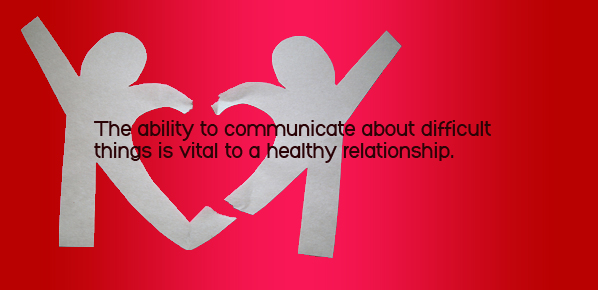Attention Therapists: Sign Up to Join My CEN Referral List

Childhood Emotional Neglect (CEN): A parent’s failure to respond enough to the child’s emotional needs.
As a mental health professional, how often have you heard the term Childhood Emotional Neglect used on its own; that is, not followed by the words “and abuse.” I scoured the databases of the APA, and used google and other search methods. I talked with colleagues, and looked through every self-help book that looked promising. Virtually every time the term “emotional neglect” is used, it is either mixed with, or used as a misnomer for, some type of physical neglect or some type of emotional abuse. This was the final factor which drove me to write a book about it. This is the driving force which has had me speaking and writing about Childhood Emotional Neglect (CEN) for the past three years.
During twenty years of practicing psychology, I gradually became aware that CEN, a tremendously powerful childhood factor, is being overlooked. Why? Because CEN hides. It dwells in the sins of parental omission, rather than commission. It’s the white space in the clinical picture, rather than the picture itself. It’s what was not said or observed or remembered from our patients’ childhoods, rather than what was.
**SPECIAL NOTE TO LICENSED THERAPISTS: If you have read Running on Empty or have taken my Fuel Up for Life online CEN program and would like to receive referrals from me to treat folks who are looking for a CEN specialist, please fill out the quick google form linked here:
SIGN UP TO JOIN MY CEN THERAPIST REFERRAL LIST
We therapists know that emotion is important, and that if it is not handled well by our clients’ parents in childhood, there will be clear and direct results years later, when our clients are adults. When we screen and evaluate our patients, we ask them about everything that they can see, hear, touch and remember about their childhoods: major events, including emotional, physical, verbal abuse, or any type of trauma, for example. We look for all of these types of memories, as we know that any of these experiences, in even subtle forms in childhood, can play out over a lifetime. We also know about emotional neglect and parental failures. But these are so invisible and unmemorable that it’s difficult to grab onto and difficult to talk about. How do we help our clients become aware of the full impact of what didn’t happen for them?
It took me years of encountering patients who were difficult to understand based upon all of the usual factors to realize that, in some cases, I was asking the wrong questions and looking in the wrong places. Childhood Emotional Neglect is invisible, intangible, and unmemorable. It’s not something that a parent does to a child. Instead, it’s something that a parent fails to do for a child. Since it’s not an act, but a parent’s failure to act, it’s not noted or remembered by parent, child or onlooker. Yet it has a profound effect upon how that child will feel and function as an adult.
Some people can be profoundly affected by one incident of extreme Emotional Neglect, and some may experience a childhood filled with mild incidents. Others experience a childhood that is so riddled with CEN that they grow up defined by it. In my own clinical experience, I have found that few, if any, of these people remember or report any of it. In fact, many of them report (and had) loving, caring parents who had no idea that they were failing their child. This is what makes CEN so pernicious, so difficult to see, and so easy to overlook by clients and their therapists.
I have identified a particular pattern of characteristics in adults who experienced CEN as a child. They include, among others, struggles with emotional awareness; self-blame; feelings of emptiness; problems with self-discipline; and a deep-seated feeling that “something is wrong with me,” which I call the Fatal Flaw.
I have found that keeping Emotional Neglect in the forefront of my mind, and talking about it specifically with patients has made me a far more effective therapist. I feel that for years, I was like the proverbial blind man, treating parts of the elephant – unaware that there was a whole elephant to which I should be attending.
- I now have a way of understanding why patients who recall having had a fine childhood are struggling with self-discipline, emptiness, or even suicidal thoughts.
- I now know how to understand and work with a patient who is counter-dependent, or has low emotional intelligence, self-directed anger or self-blame.
- I can address suicidal thoughts and feelings on a whole new level.
- I have the words to talk directly to people about what’s really wrong.
Visit my Readers’ Comments Page to see what readers are saying about CEN.
In writing my self-help book, Running on Empty: Overcome your Childhood Emotional Neglect, I have two goals which I am passionate about:
1. I want to make Childhood Emotional Neglect a household term. I want to make as many people as possible aware of the power of this largely overlooked, invisible factor. I want people to know how it affects us when our emotions are not validated; first by our parents in childhood, and later by ourselves in adulthood. I want to take a childhood non-event, which typically goes unseen and unnoticed, and give it equal recognition and respect to the events that we talk about with our patients every day. I want to offer a specific, shared language for us all to talk about this parental failure to act with our patients, and a framework to treat it.
2. I want to ask you, my fellow mental health professionals, to help bring this concept to more people. I’m interested in opening up a sharing of thoughts and experiences among mental health professionals. I want to know if it resonates with you in your clinical work. I want to find out if you will have the same feeling of understanding and success in being able to reach more patients, offer them answers, and move them forward.
I hope you will find Running on Empty: Overcome your Childhood Emotional Neglect a helpful resource. With a special chapter for parents and another for mental health professionals, I hope it will help you open new doors with stuck patients.
Fill out the form below to join my Therapist Newsletter, and if you are licensed and have read Running on Empty or taken one of my trainings, I will add you to my Find A Therapist List to receive referrals from .
SIGN UP TO JOIN MY CEN THERAPIST REFERRAL LIST
And if you would like to help your patient further, click here to learn more about my Fuel Up for Life program.
To learn more about Childhood Emotional Neglect, see my first book Running on Empty.
Truth with Compassion

I just can’t say that to her. I don’t want to hurt her!
How many times have those words been uttered in my office? Countless. A lot of husbands and wives feel that it’s much better to keep their relationship concerns to themselves than to risk hurting their partners by voicing them.
Good news! There is a way to tell your partner negative things.
Say that you’re worried that your husband is drinking too much…or that you feel your wife is too wrapped up in your son’s life…or even that you are feeling unhappy in your relationship in general (yes, that’s a really tough one!). Here are the steps to follow:
1. Ask yourself: How would I feel if my partner said this to me?
2. Ask yourself: If my partner felt this way, how would I want him or her to tell me this? What would make it easier for me to hear?
3. Formulate your ultimate goal in bringing up the issue ahead of time. Don’t expect to perform miracles with one conversation. Maybe you will just plant a seed that can be nurtured over time. Many conversations may be required to fully address some issues.
4. Communicate your issue in a careful, thoughtful, compassionate way. Be prepared for your partner to be upset, and if you start to feel defensive, keep it in check.
Keep in mind that you must speak your truth, even if it is painful for you and for your partner. Buried, unadressed issues fester and can destroy relationships. Issues that are communicated about directly and with compassion may hurt at first, but they lose their power to be destructive.
To learn more about Childhood Emotional Neglect, see my first book Running on Empty.
